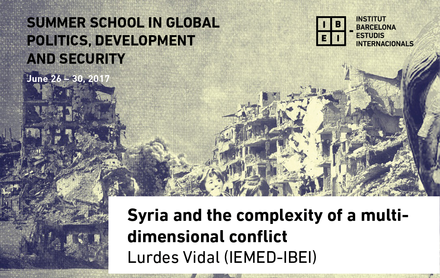Syria and the complexity of a multi-dimensional conflict
4 hour course
June 28 – 29 (2.30 – 4.30 pm)
Download the syllabus
Syria revolution erupted in 2011 following Arab Spring uprisings in neighboring countries. The initial peaceful revolutionary movement was harshly repressed from the beginning and the revolutionary movement quickly suffered a militarisation process that ended up in a long and highly lethal war. The Syrian conflict has witnessed over the last 6 years a growing trend of sectarianism and the emergence of radical militias in both sides and Jihadi-inspired groups such as ISIS. They have further complicated the conflict and operated thanks to and favouring foreign intervention. Syria is a local conflict that has gradually absorbed regional tensions (both historical and recently-created) and global rivalries playing simultaneously on the Syrian ground. Therefore, its effects will have implications not only for Syrians and Middle-Easters, but also for the international community as a whole.
In this course we will study drivers, origins, actors - domestic and external - and consequences of a conflict that has been considered the biggest humanitarian tragedy since the II World War.
| General information | Admission process | Registration form |

